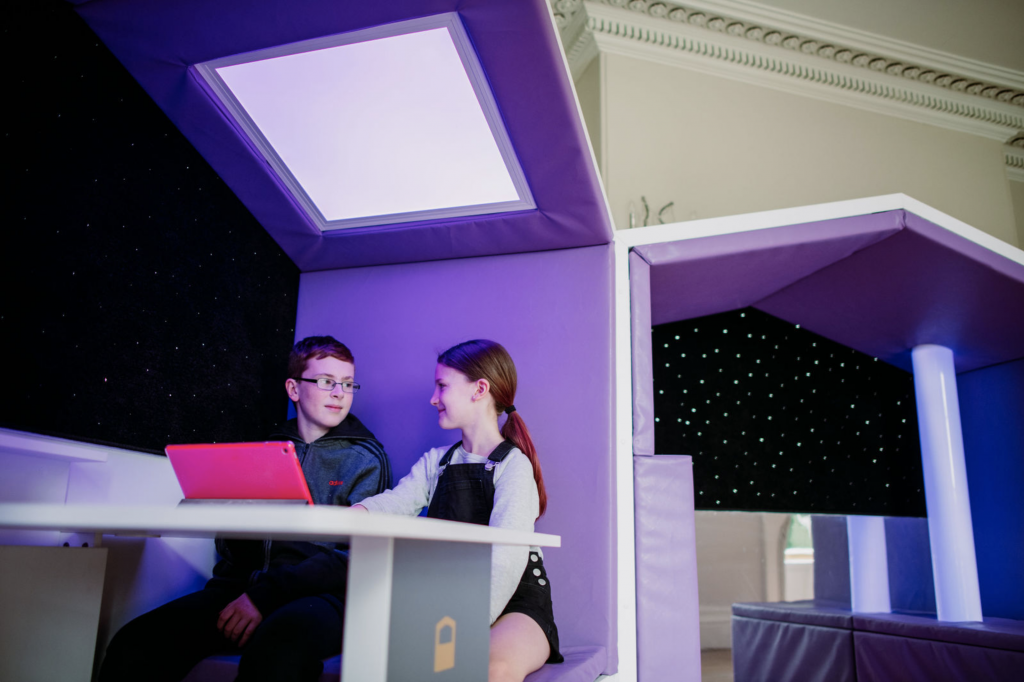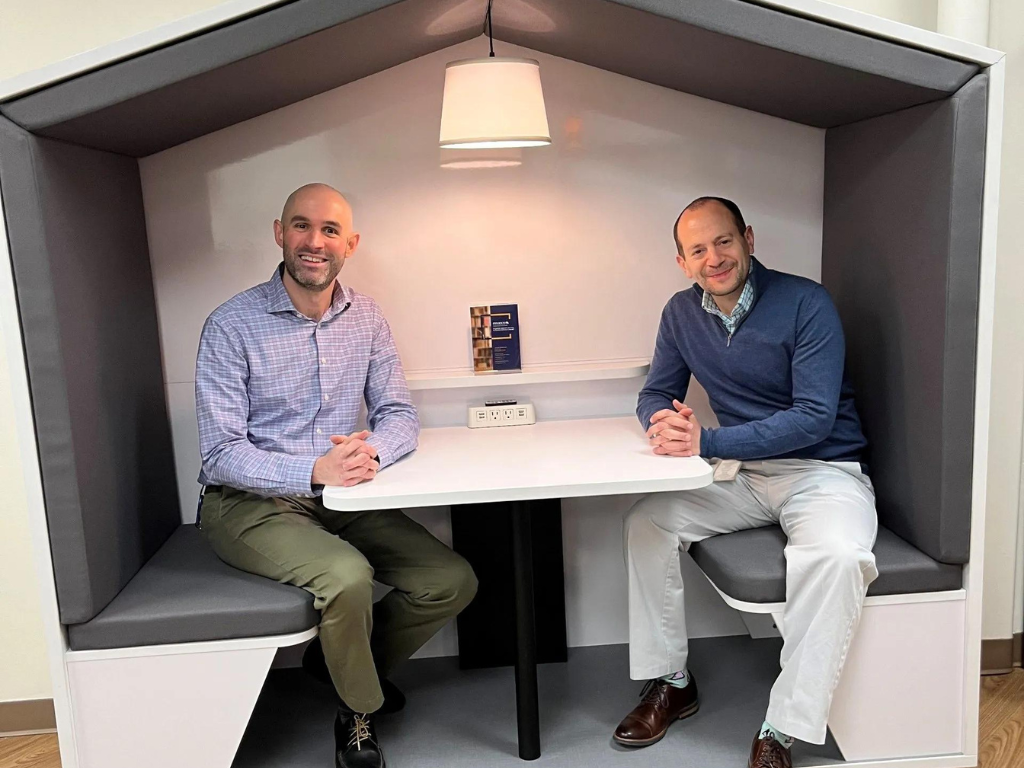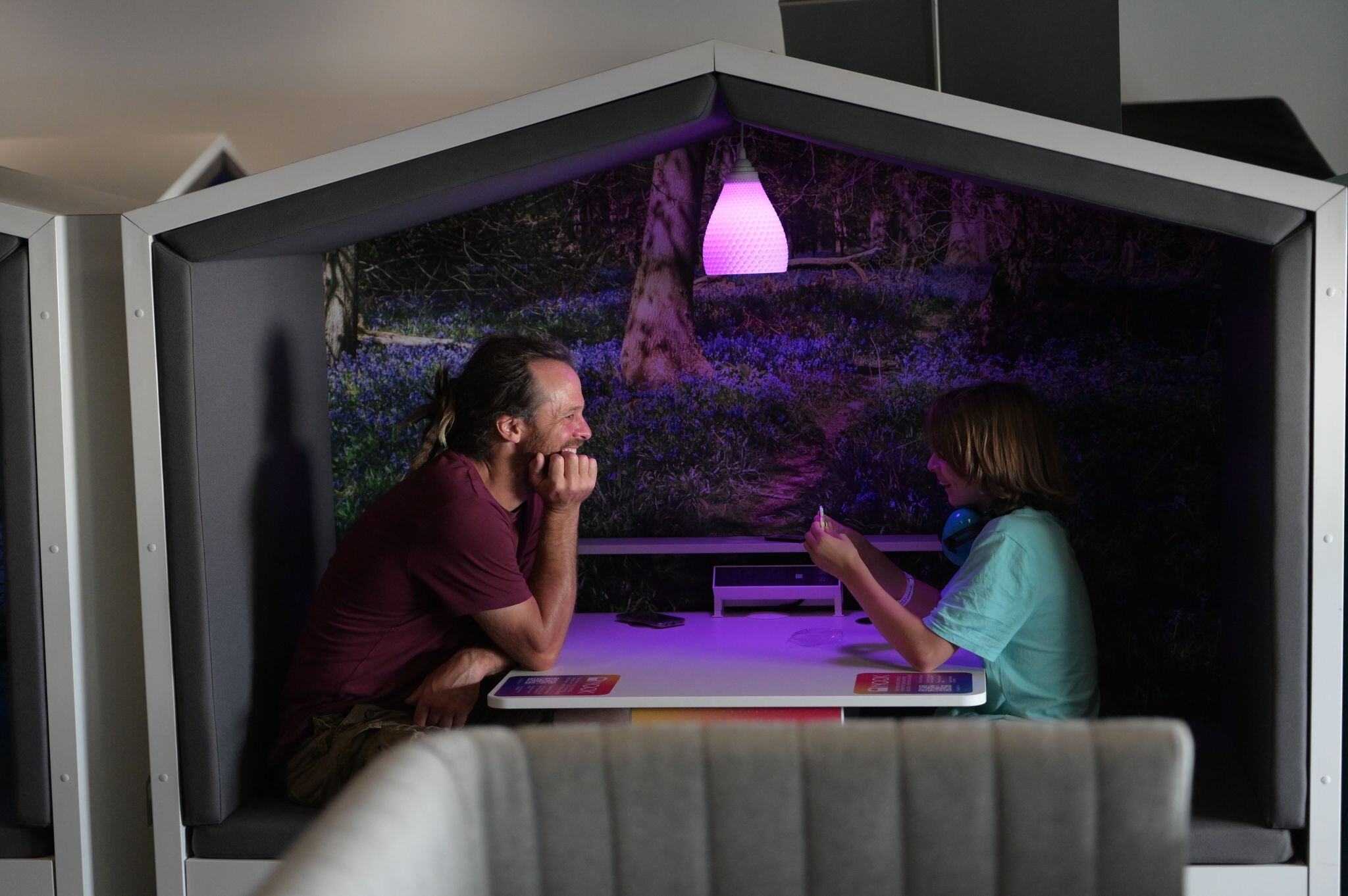Re-shaping educational space for neurodivergent individuals
For many educational establishments, finding the physical space or the finance to dedicate resources to neurodivergent pupils has been difficult. But smart sensory furniture solutions are changing the picture.
If they didn’t know it already, educational decision-makers are quickly realising that physical space is at a premium as they juggle desks and equipment to meet social-distancing guidelines. Every square-foot of space is being adapted and used, making the very idea of rooms dedicated to just one function – such as a sensory room – suddenly seem very outdated. So – how to ensure provision for neurodivergent individuals within this new normal and beyond?

Flexing now for a better future
The answer lies in modularity and flexibility – furniture, spaces and tech that can adapt by task, by time, by venue, by user. Enter Sensory Nook.
These sensory pods are designed to provide a calming breakout environment from the everyday hubbub.

Nook as a resource for education staff
Mobile sensory tech
The fact that Sensory Nooks can be built on heavy-duty wheels means that schools can position them wherever they’re required – an essential consideration in these times where socially-distanced space is at a premium. But these are not simply seating spaces. It is the tech that makes them truly supportive for neurodivergent individuals.
Controlled via a simple Android tablet and app, these spaces are totally adaptable to meet specific personal requirements for the most effective sensory support. Lighting is proven to have a powerful influence on mood, energy levels and the ability to process information, so the ability to control light effects is key. Interactive light tubes, colour select lighting, UV twinkle effect strands, fibre-optic twinkling wall carpet – all can be used to engage and calm individuals. Other innovations include vibrating seat pads which help to comfort and relax tense muscles, and even a nebulising scent system to help with tasks involving memory retention.

Nook used as a respite for Education staff
A sensory solution for the benefit of all
In fact, Sensory Nook can benefit the classroom as a whole. The Children’s Commissioner recently reported that a survey amongst children with a history of mental health needs showed 83% saying the pandemic has made their mental health ‘a bit or much worse’. These children will need extra support facilities when they return to school.
The pandemic has made everyone question normal routines and legacy practices. Change is necessary, and those applying longer-term thinking to this immediate challenge stand to create environments that enable every individual to be the best they can be.



.png)
.png)
